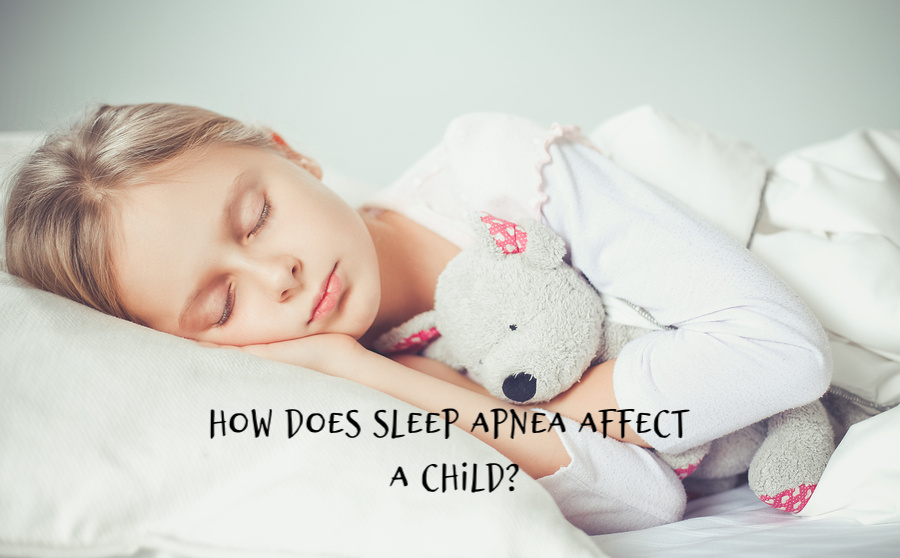By: Lauri Leadley, CCSH, RPSGT – Clinical Sleep Educator|Sleep Coach

Lauri Leadley, Clinical Sleep Educator, President of Valley Sleep Center
Sleep apnea is not an age-related sleep disorder. Even children can suffer from the condition and may exhibit the common symptoms of loud snoring, frequent pauses in their breathing cycle, and waking up abruptly gasping or choking for air.
Sleep apnea affects somewhere between 1 to 4 percent of children – among this group, a substantial percentage falls in the age range of 2 and 8 years old.
Although there is a possibility that sleep disorders might disappear with age, a condition such as sleep apnea can impact quality of life and cause learning and behavioral difficulties in children while it is present.
So, my advice to all parents is that if you notice your child struggling to sleep over an extended period, or if your child displays any of the above-mentioned symptoms of obstructive sleep apnea (OSA), please consult with a pediatrician as soon as possible.
Please keep in mind that snoring is not a “normal” occurrence – it could very well be an indicator of a blocked passageway. If your child is snoring, you should consult a doctor.

Sleep Apnea in Children – Why Early Diagnosis is Critical
Several studies have shown that children who are overweight can develop sleep apnea. Being overweight can lead to drastic dietary changes and limit physical activity in children – both of which are as critical for proper growth as is good quality sleep.
Related Article – Why does Sleep Apnea Cause Weight Gain?
And as is the case with adults suffering from sleep apnea, children can suffer from daytime fatigue and excessive sleepiness.
In addition, untreated sleep apnea can cause high blood pressure and cardiovascular problems.
Enlarged tonsils is a common reason for sleep apnea in children. If it is determined that sleep apnea in a child is due to enlarged tonsils, surgically removing the tonsils can be a successful treatment option.
Common Symptoms of Sleep Apnea in Children
It is important to track the sleep pattern and habits of your child if they suffer from poor quality sleep.
This information can help a sleep coach or doctor in determining if your child suffers from sleep apnea or any other sleep disorder. Common symptoms of sleep apnea include:
- Loud snoring on a regular basis.
- Sleep disruptions caused due to repeated pauses in breathing.
- Either choking or gasping for air when breathing stops.
- Restlessness while sleeping.
- Abnormal sleeping positions to ease breathing.
- Excessive nighttime sweating.
Daytime Symptoms of Sleep Apnea in Children
If your child suffers from sleep apnea, they will display certain symptoms during the daytime as well. These include;
- Waking up in the morning is difficult or a big challenge.
- Behavioral, learning, and social problems.
- The child might complain of headaches – especially in the morning.
- Mood swings – the child might be cranky or irritable, or they might be hyperactive, agitated or aggressive.
- The child might breathe through their mouth more often and speak with a nasal tone.
- Displays excessive daytime sleepiness – it might be severe enough that your child falls asleep mid-task or at school.
Treating Sleep Apnea in Children
If your child has problem sleeping or if you suspect sleep apnea, it is important that you consult with a pediatrician.
Keep a close eye on your child’s sleeping pattern and track their actions and behavior during the daytime as well.
If your child suffers from sleep apnea, they will sleep poorly at night. As a result, the child might feel tired during waking hours. Their concentration levels might dip, so schoolwork suffers. Constant mood swings and lack of sleep can lead to sleep deprivation – this in turn can increase risk of depression and anxiety.
But there is good news for children suffering from sleep apnea. First, as mentioned above, most children tend to outgrow sleep apnea with age. Even if this does not happen with your child, treatment options are available.
Continuous positive airway pressure (CPAP) therapy can help treat OSA in children. The device can be easily customized with a child-sized mask for easy use.
The important thing, however, is to ensure that your child receives treatment for sleep apnea or any other sleep disorder at the earliest. So, speak with your doctor and find the best treatment option for your child.
Valley Sleep Therapy – We Believe in Good Quality Sleep for All!
If you are looking for information about sleep devices and products or services for treating different sleep disorders, visit us at Valley Sleep Therapy. Browse our online CPAP supplies store or visit us in Mesa, AZ today!

